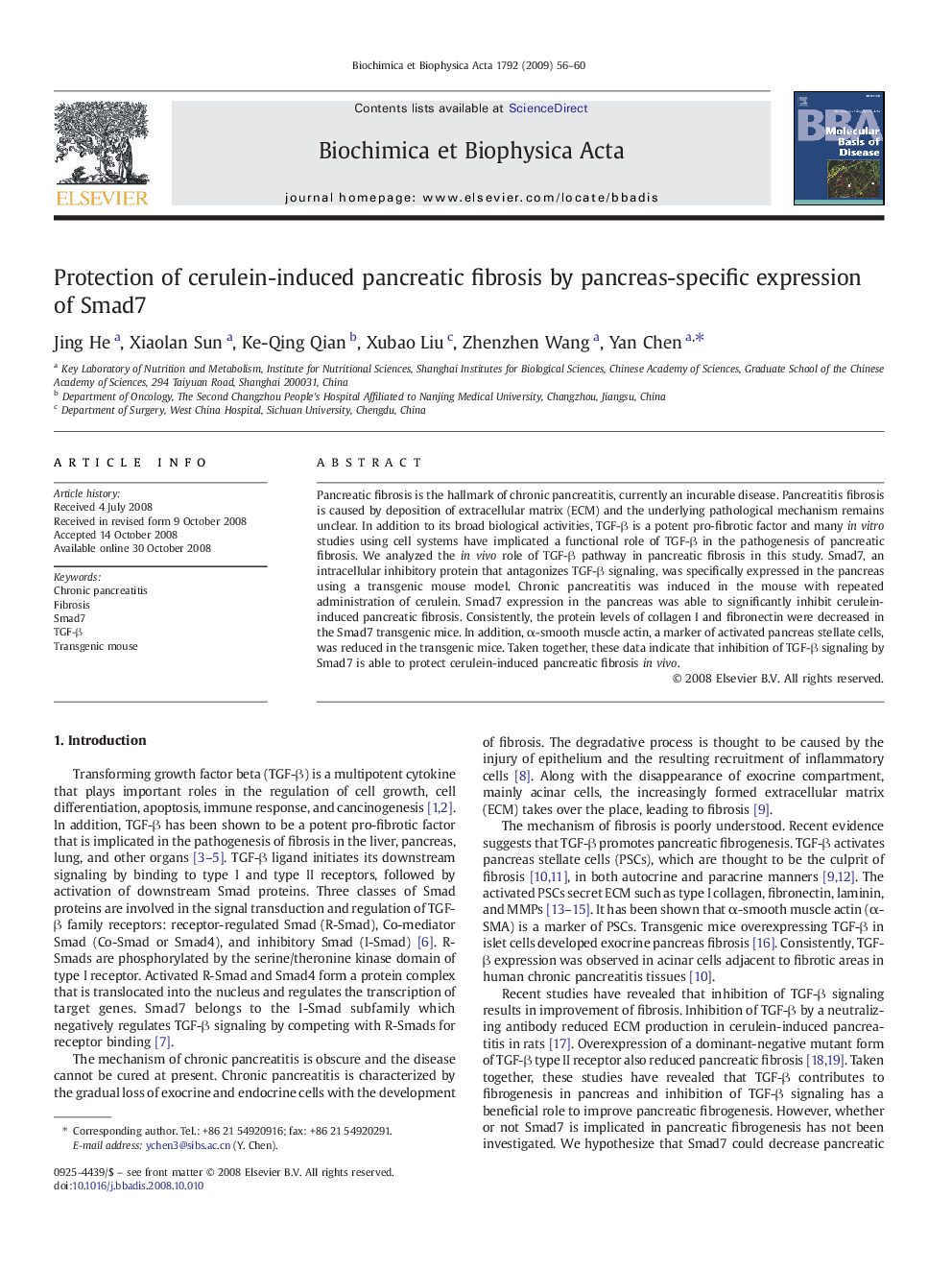| Article ID | Journal | Published Year | Pages | File Type |
|---|---|---|---|---|
| 1905590 | Biochimica et Biophysica Acta (BBA) - Molecular Basis of Disease | 2009 | 5 Pages |
Pancreatic fibrosis is the hallmark of chronic pancreatitis, currently an incurable disease. Pancreatitis fibrosis is caused by deposition of extracellular matrix (ECM) and the underlying pathological mechanism remains unclear. In addition to its broad biological activities, TGF-β is a potent pro-fibrotic factor and many in vitro studies using cell systems have implicated a functional role of TGF-β in the pathogenesis of pancreatic fibrosis. We analyzed the in vivo role of TGF-β pathway in pancreatic fibrosis in this study. Smad7, an intracellular inhibitory protein that antagonizes TGF-β signaling, was specifically expressed in the pancreas using a transgenic mouse model. Chronic pancreatitis was induced in the mouse with repeated administration of cerulein. Smad7 expression in the pancreas was able to significantly inhibit cerulein-induced pancreatic fibrosis. Consistently, the protein levels of collagen I and fibronectin were decreased in the Smad7 transgenic mice. In addition, α-smooth muscle actin, a marker of activated pancreas stellate cells, was reduced in the transgenic mice. Taken together, these data indicate that inhibition of TGF-β signaling by Smad7 is able to protect cerulein-induced pancreatic fibrosis in vivo.
